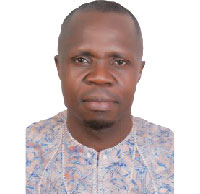Anytime the church prays, something unusual happens. And anytime the nation prays, unthinkable favour rains. Whenever we cease operating by our might and turn to God, the uncommon unfolds. Hannah prayed for a child, Rachel did the same, and God did not ignore them.
Even kings, when they drop their royalty, and kneel in humility, the unthinkable happens. Read 2 Chronicles 20. Three nations came together to wage war against Jehoshaphat. In his state of alarm and helplessness, wisdom prevailed. He called out the entire nation and proclaimed a solemn assembly. It was another way of saying: politics is over, bickering must die, let us rescue this country first before we apportion blames. He led the nation in a solemn assembly, and made a memorable proclamation. Then he went ahead to remind God of His deeds in the past for the people of Israel from Egypt to the Promised Land. He moved God to fresh conquests with a sense of history.
It was a soul-stirring spiritual appeal, emotionally rendered with a passion unexpected of a king. Jehoshaphat was as helpless as Nigeria is today. It is about two months since those innocent girls were abducted by the villains. I believe it is time for us to go on our knees and seek God’s intervention.
The manner Jehoshaphat ended that prayer still stuns Bible historians: “O our God, won’t you stop them? We have no way to protect ourselves against this mighty army. We don’t know what to do, but we are looking to you.”
He was desperate; almost incautious. There was no pretension. He needed answers quicker than you can imagine. He cried in an un-kingly manner. Though he knelt in the congregation of the people, he spoke as though he was alone with God in his prayer closet. Instantly, God heard him and responded.
Nigeria is facing one of its darkest moments since 1914. Terrorists are on the prowl. There is fear in the land. No one seems to be safe. The rich are already relocating, leaving the poor behind.
It is time to do the ridiculous to achieve the miraculous. Let us pray that those girls return unhurt; that sponsors of terror will sleep and not wake up; that whenever terrorists sit to assemble a bomb, it must explode and consume them; that hunger ceases in the land; that peace replaces fury; and so shall it be.
I believe God will answer when we pray because He says: “If my people who are called by my name humble themselves, and pray and seek my face and turn from their wicked ways, then I will hear from heaven and will forgive their sin and heal their land.”
Though tribe and tongue may differ
Whoever expected the on-going national conference to be a smooth ride is neither a Nigerian nor unfamiliar with Nigerian history. My worry is that the discordant tunes seem to be getting worse. From the era of the boring debate on the president’s speech to when committees started work, it has been fireworks all the way. People pull swords of disagreements on virtually every issue.
Now that the reports have been submitted for deliberation, the worst scenarios are unfolding at the speed of sound. From the conference, a new expression has already been added to our political lexicon. When an issue cannot be resolved at a particular sitting, it is “put in bracket”. This is another way of saying the matter has been carried forward or put in abeyance. Then a special committee with members from all parts of the country is assembled to handle it.
Some people and groups deliberately went to the conference to oppose every idea that is contrary to their mindsets. Sometimes they start opposing such ideas before seeking clarification on what they are all about. The original perception that every delegate should view Nigeria as his primary constituency was a mere mirage.
Truly, no doubt, no national conference has ever been smooth; not even the American Constitutional Convention of 1887. The only difference is that while in other countries, disagreements are based on issues; here, they are based on ethnic loyalty. For instance, delegates from the North are opposed to the removal of Land Use Act from the constitution, as one of them bluntly said, so that wealthy Southerners will not buy over the entire North. Another delegate said “our ownership of 70 per cent of Nigeria’s landmass” would cease if anybody touches the Land Use Act.
I still believe this conference has potentials of success if somebody knows that though tribe and tongue may differ, in brotherhood we stand. Just as it happened at the Philadelphia Convention, compromise, at times, works wonders.













